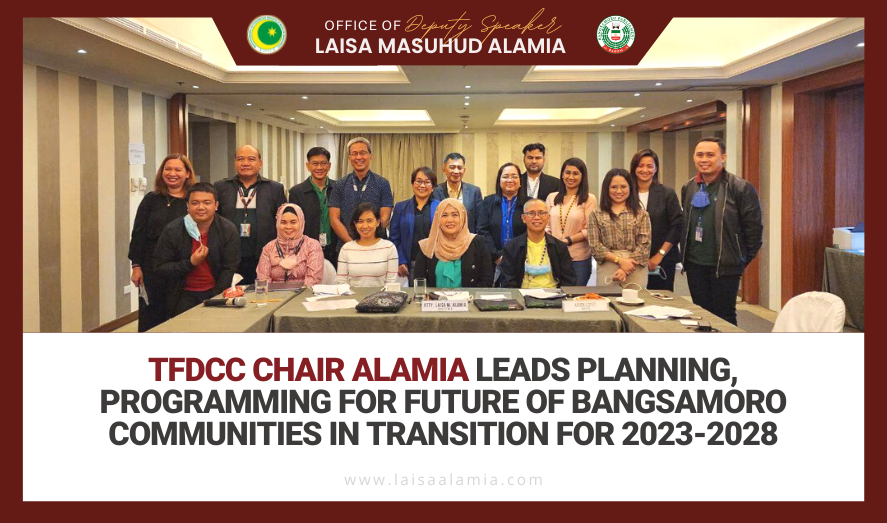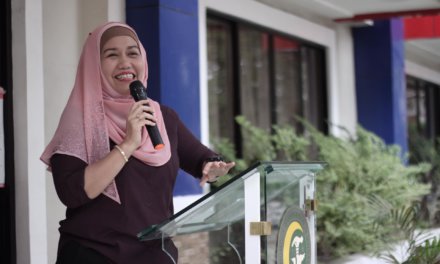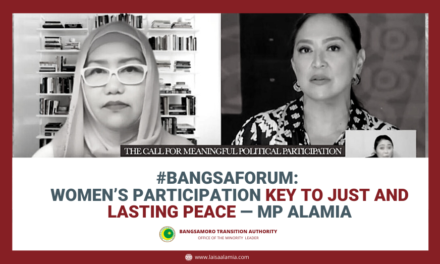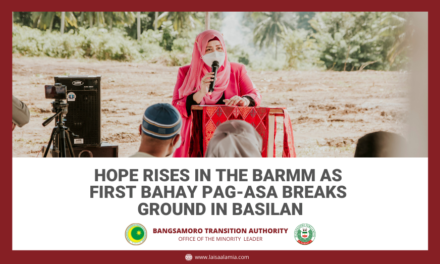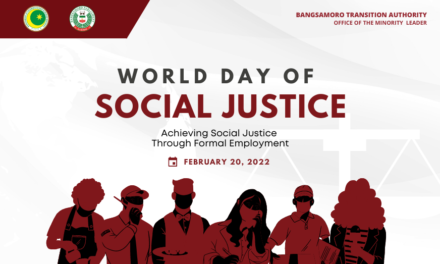Outlining its plans for Bangsamoro communities in transition, the GPH Task Force for Decommissioned Combatants and their Communities (TFDCC) held its annual workshop-consultation together with partner agencies last October 26 at the Linden Suites in Ortigas Center, Pasig City.
GPH TFDCC Chair MP Atty. Laisa Masuhud Alamia led the sessions, particularly those that involve ensuring budget allocations necessary to implement the socioeconomic transformation program for decommissioned Moro Islamic Liberation Front (MILF) combatants and their communities in the next five years.
The socioeconomic development program framework for decommissioned combatants includes allocations for social protection, livelihood and employment, capacity development, and small-scale infrastructure necessary for post-conflict transformation and development in Bangsamoro communities across the region.
Partners in attendance also included national government agencies and regional ministries who were present online via teleconference. Their presence ensured that the challenges encountered in the decommissioning process so far were discussed thoroughly, along with strategies and solutions that the government can use together with community beneficiaries.
Among those present were representatives from the Department of Agriculture (DA), Department of Labor and Employment (DOLE), Department of Health (DOH), Commission On Higher Education (CHED), and the Technical Education Skills and Development Authority (TESDA), with regional counterparts from the Ministry of Basic, Higher, and Technical Education (MBHTE) and Ministry of Health (MOH). They are joined by representatives of the Philippine Health Insurance Corporation (PHIC), Philippine Statistics Authority (PSA), National Irrigation Administration (NIA), and the National Electrification Administration (NEA).

